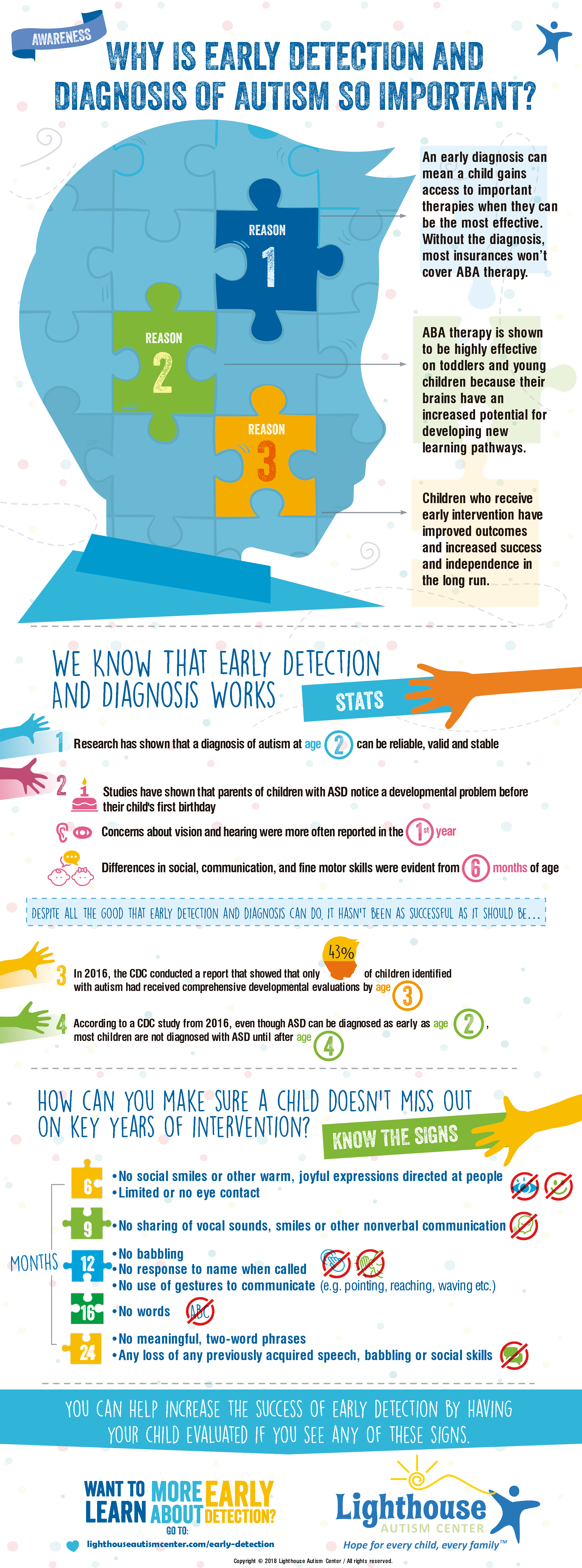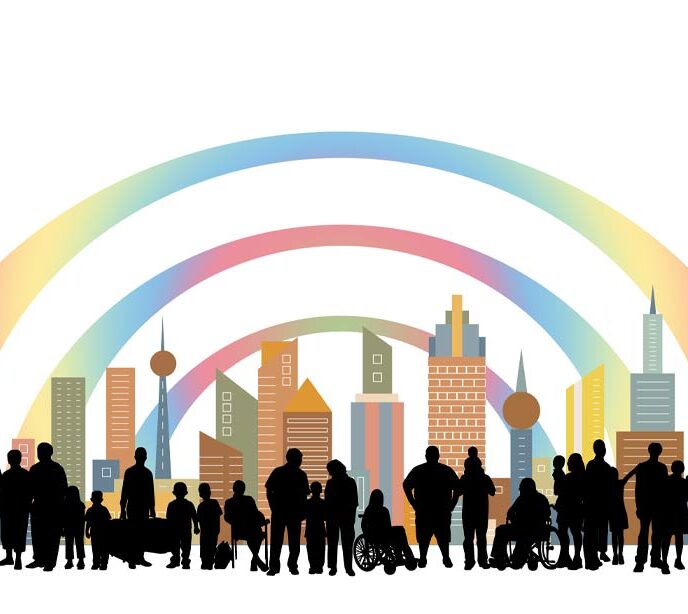Importance of Early Autism Diagnoses
Our in-depth infographic explains the importance of early detection and diagnosis in autistic children. We also identify some of the early signs to look out for.
INFOGRAPHIC: Why is Early Detection and Diagnosis So Important?

What is Autism?
Autism spectrum disorder (ASD) is a developmental disability that can cause significant social, communication, and behavioral challenges. About 1 in 36 children has been identified with autism spectrum disorder (ASD), according to estimates from CDC’s Autism and Developmental Disabilities Monitoring (ADDM) Network. People with ASD have abilities that vary significantly. Autism affects each person differently, making it truly a spectrum disorder. People with autism may behave, communicate, interact, and learn in ways that are different from most other people. Some people with ASD need a lot of assistance, whereas others live very independently with little to no support.
Autistic individuals typically do not have any identifiable defining physical features that set them apart from other people, and the characteristics of autism often become more obvious when judging against behavioral milestones. Some children show symptoms of autism within the first 12 months. In others, symptoms may not show up until 24 months of age or later. Some autistic children gain new skills and meet developmental milestones until around 18 to 24 months of age, and then they stop gaining new skills or lose the skills they once had.
Signs and Symptoms
People on the autism spectrum often struggle with social interactions and communication, as well as repetitive and restrictive behaviors. It’s important to recognize the signs of early autism to get a diagnosis as soon as possible.
Some of the most common early signs of autism in babies typically include:
- No social smiles or other joyful expressions for caretakers or parents,
- Limited or no eye contact,
- No sharing of vocal sounds, smiles, or other nonverbal communication,
- No babbling, and
- No response to being called by their name.
The early signs of autism in toddlers typically include:
- No use of gestures to communicate, such as pointing, reaching, or waving,
- No words or verbal communication,
- Loss of any previously acquired speech, verbal communication, or social skills, and
- Loss or pause of obvious physical development milestones like eye contact and smiling.
Learn more about the early signs and symptoms of Autism Spectrum Disorder.
Learn more about important milestones that your child should reach.
Evaluating your Child
Are you seeing the signs of autism in your child but don’t have an evaluation yet? Early detection and diagnosis are crucial to improved outcomes and increased success and independence in the long run. View our list of early signs and symptoms of autism in babies, toddlers, and young children. Then, connect with Lighthouse’s network of professionals who have the expertise to fully evaluate your child with a comprehensive autism evaluation.
Together, we can unlock your child’s potential
Related News

06/11/2025
Overcoming Stereotypes
Autism stereotypes are common and can have significant social consequences for autistic children. Misconceptions hinder the acceptance and inclusion of autistic children. Challenging these stereotypes is vital for creating a more understanding and supportive society. Challenging Common Autism Stereotypes When people hear the word “autism,” they often imagine a narrow set of images, like the […]

06/11/2025
What’s Next After ABA Therapy?
There are a number of reasons why an autistic child might stop ABA therapy, and one is that they have reached their goals. In this article, we take a look at what parents can expect going forward. What Are the Next Steps After ABA Therapy? As a parent, you only want what’s best for your […]

06/11/2025
Do Babies with Autism Smile?
We take a look at the importance of early intervention, some of the milestones for parents to look out for, and the more common signs of autism in babies. Do Babies with Autism Smile? Watching your baby grow is an exciting time, certainly one of life’s quiet wonders. From those first sleepy stretches to the […]


